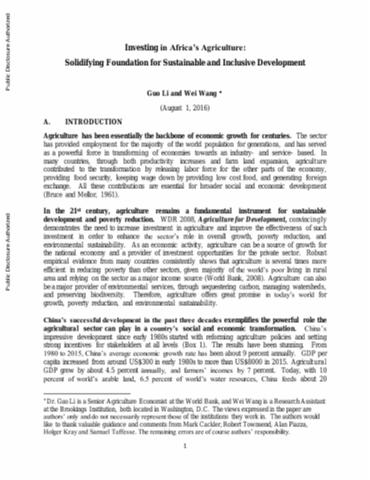Resource information
Agriculture has been essentially the backbone of economic growth for centuries. The sector has provided employment for the majority of the world population for generations, and has served as a powerful force in transforming of economies towards an industry- and service- based. In many countries, through both productivity increases and farm land expansion, agriculture contributed to the transformation by releasing labor force for the other parts of the economy, providing food security, keeping wage down by providing low cost food, and generating foreign exchange. All these contributions are essential for broader social and economic development (Bruce and Mellor, 1961). In the 21st century, agriculture remains a fundamental instrument for sustainable development and poverty reduction. WDR 2008, Agriculture for Development, convincingly demonstrates the need to increase investment in agriculture and improve the effectiveness of such investment in order to enhance the sector’s role in overall growth, poverty reduction, and environmental sustainability. As an economic activity, agriculture can be a source of growth for the national economy and a provider of investment opportunities for the private sector. Robust empirical evidence from many countries consistently shows that agriculture is several times more efficient in reducing poverty than other sectors, given majority of the world’s poor living in rural area and relying on the sector as a major income source (World Bank, 2008). Agriculture can also be a major provider of environmental services, through sequestering carbon, managing watersheds, and preserving biodiversity. Therefore, agriculture offers great promise in today’s world for growth, poverty reduction, and environmental sustainability. China’s successful development in the past three decades exemplifies the powerful role the agricultural sector can play in a country’s social and economic transformation.


